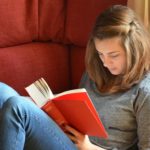These third-grade reading and literacy activities are designed to help families reinforce reading and language arts skills. For each reading and literacy skill below, various activities are provided to help third grade students develop good reading and writing abilities. All of the activities are available in one pdf file, or separately in a .zip file, which you can extract to a folder and then access each activity by name by opening the “Third Grade Reading Literacy Skills Activities – Table of Contents.htm” file. For more, check out 100 Second Grade Reading and Literacy Skills Activity Worksheets.
Third Grade Reading and Literacy Skill Categories (all-in-one PDF or .zip file):
- Recognizes Book Titles and Authors
- Reads and Comprehends Fiction and Nonfiction
- Demonstrates Familiarity with Different Types of Text
- Reads Longer Fiction and Chapter Books
- Recognizes Common Word Endings
- Identifies Parts of Speech
- Identifies Parts of a Sentence
- Breaks Words into Syllables
- Uses Plural Nouns
- Manipulates Verb Forms
- Builds Vocabulary
- Attends to Spelling and Punctuation
- Uses Context to Understand New Words (Activity 1)
- Uses Context to Understand New Words (Activity 2)
- Infers Word Meanings from Roots, Prefixes, and Suffixes
- Recognizes Words by Sight
- Reads Aloud with Fluency and Comprehension
- Reads Silently
- Spells Familiar Words (Activity 1)
- Spells Familiar Words (Activity 2)
- Breaks Words into Syllables
- Places Words in Alphabetical Order
- Uses a Dictionary for Spelling
- Identifies Unknown Words
- Infers Word Meaning from Prefixes
- Infers Word Meanings from Suffixes
- Incorporates New Words in Writing and Speaking
- Incorporates New Words in Reading and Writing
- Comprehends Spoken Directions
- Uses the Correct Words in Context
- Uses the Writing Process
- Edits and Revises Writing (Activity 1)
- Edits and Revises Writing (Activity 2)
- Reviews Work for Spelling, Mechanics, and Presentation
- Creates a Word Web
- Writes Descriptions
- Writes Stories
- Writes Letters
- Writes Directions
- Keeps a Writer’s Notebook
- Writes Lists and Reading at Length
- Reads Independently
- Summarizes Major Points from Fiction
- Discusses Underlying Themes in Fiction
- Recognizes Nonfiction in Book Layout
- Incorporates Reading Vocabulary into Writing and Speaking
- Monitors Comprehension While Reading
- Comprehends Written Directions

-love learning -your best ed lessons guide, Scott



